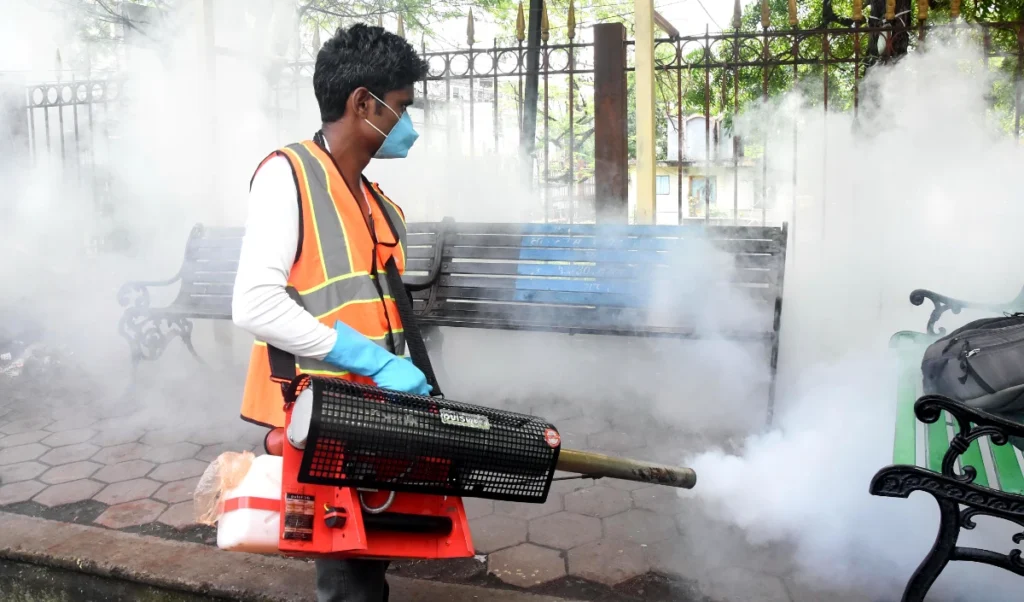
Dengue fever is a mosquito -borne viral infection that is common in tropical and subtropical regions around the world. It is caused by dengue virus, which spreads to humans by biting infected Aedes mosquitoes, mainly Aedes aept. Early diagnosis and helpful care is extremely important to prevent effective management of dengue and serious complications such as dengue hemorrhagic fever or dengue shock syndrome.
Also read: MCD’s big step for Delhiites’ health, 3 hospital alert to deal with dengue-malaria
Dengue fever usually starts with sudden high fever. This is followed by rapid headache, muscle and joint pain, rashes and sometimes mild bleeding. These symptoms can be uncomfortable and quite painful. However, the real danger is caused by severe dengue, also known as dengue hemorrhagic fever or dengue shock syndrome. Severe dengue can cause serious complications and can also be fatal.
Seven major warnings will discuss signs that may indicate that the disease is turning into severe dengue. These warning signals include severe abdominal pain, persistent vomiting, fast breathing, bleeding from gums, fatigue, discomfort and vomiting. To get the right treatment, it is necessary to identify these signs quickly.
Also read: Refusal to accept party line! Shashi Tharoor will not speak in Parliament on Operation Sindoor, know Inside Story
7 major warning signals of dengue fever
Early identifying warnings may give you the right treatment and serious complications can be avoided. The seven major warnings of dengue fever are as follows:
High fever
Rapid headache
Joints and muscle pain
nausea and vomiting
Skin rashes
Fatigue and weakness
Mild bleeding
Symptoms of dengue fever
High fever (104 ° F or more) its first and most common symptom is sudden, high fever that can last for several days, often with cold and discomfort.
Fast headache and pain behind the eyes
A specific pain behind the eyes, which increases by moving, is one of the most recognizable symptoms of dengue. This rapid headache is often accompanied by sensitivity to light, fever and muscle pain, making it difficult for patients to do daily activities.
Muscle and joint pain (bone breaking fever)
Fast pain of muscles and joints often causes difficulty in moving or regular functioning, which is why dengue is called “bone breaking fever”.
Signs of bleeding
There are warning signs of gums bleeding, nasal bleeding, vomiting or bleeding in stool, or easily injury, dangerous decline in platelet count.
Severe abdominal pain and fluid retention
Inflammation, swelling or restlessness under the ribs can be a sign of the problem of internal fluid leak and liver, which is common in severe dengue. Fatigue, drowsiness, and restlessness indicate excessive fatigue or abnormal irritability infection and a potential organ stress indicates stress.
Dengue fever prevention suggestions
Prevention of dengue fever involves reducing exposure and reproduction of mosquitoes:
Remove mosquito breeding sites: Empty and clean the water utensils used for bathing buckets, pots and birds.
Use mosquito escape medicines: Use drugs with mosquito -rich drugs with DEET, picardin or lemon eucalyptus oil on open skin.
Wear protective clothes: long sleeves and pants can help reduce mosquito bites, especially during the extreme time (morning and evening) of mosquito activation.
Put screen: Put a screen on the window and door to keep mosquitoes away from your home.
Use mosquito nets: Sleeping under mosquito nets can provide additional protection, especially in places where mosquitoes have more activity.
conclusion
Dengue fever is a serious health problem in many parts of the world, the symptoms of which can range from light to severe. Early identification of warning signs and symptoms, taking immediate medical help and taking preventive measures are important steps to manage dengue fever and its effects. By maintaining information and activeness, people can protect themselves from this potentially serious illness. Remember, prevention is always better than treatment, so take necessary steps to avoid mosquito bites and reduce the risk of dengue fever.
Disclaimer: The suggestions of this article are for general information. Do not take these suggestions and information as the advice of any doctor or medical professional. In the event of symptoms of any disease, please consult a doctor.





